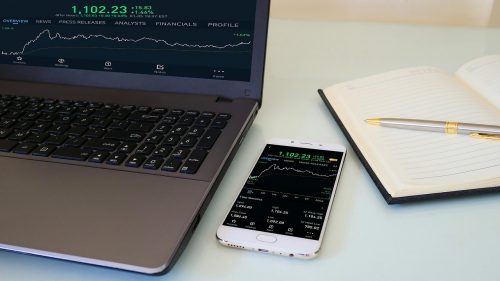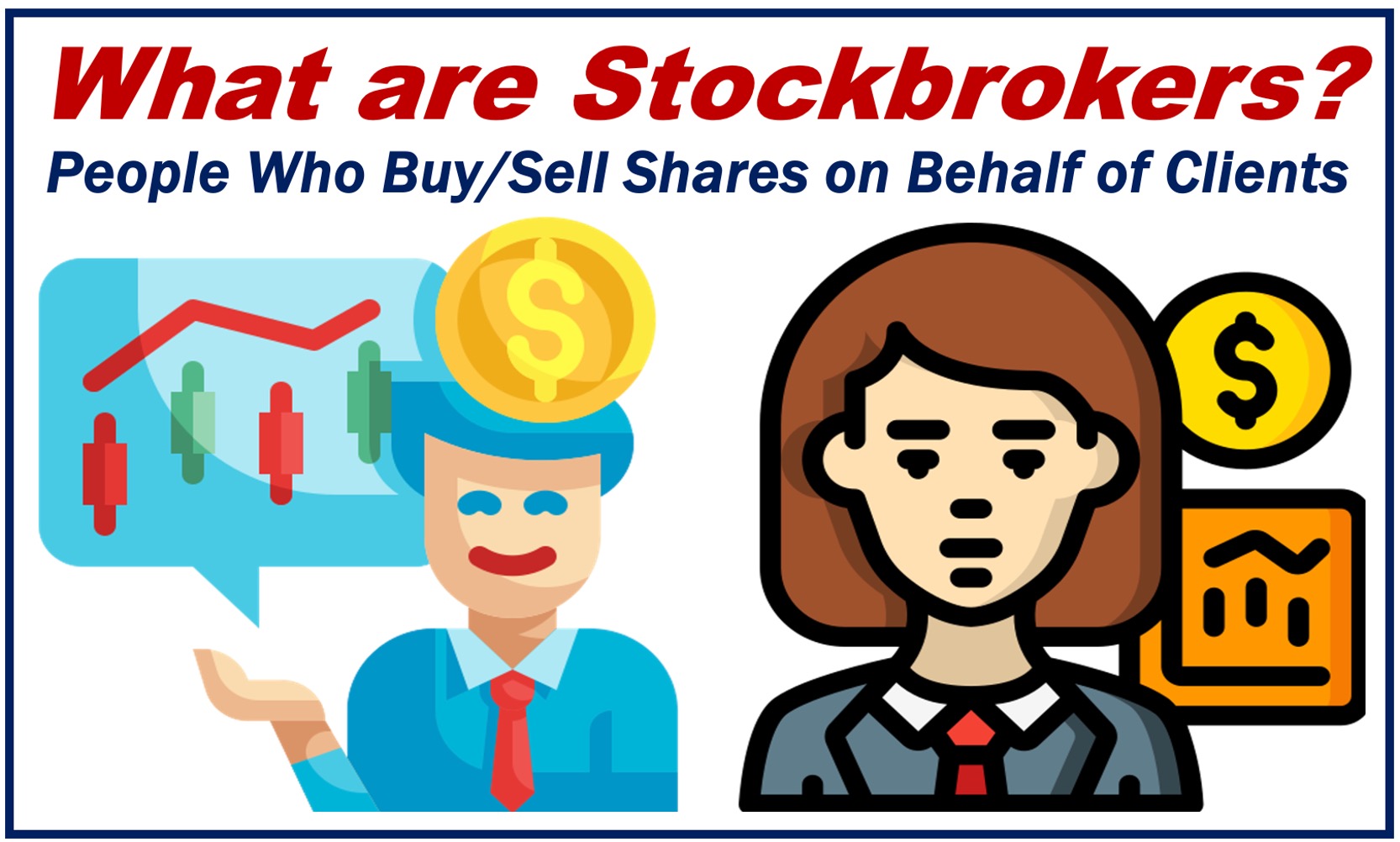What is a stockbroker? What do they do?
A Stockbroker is an individual who buys and sells securities, such as stocks and shares. They do this on behalf of private and commercial clients, in return for a commission or a fee. They may also trade on their own account and help companies issue new securities.
 Following and analyzing market trends is part of the job. Image pixabay.
Following and analyzing market trends is part of the job. Image pixabay.
According to Merriam-Webster, a stockbroker “executes orders to buy and sell securities and often also acts as a security dealer.”
The second part of the definition extends the role of broker to that of dealer. When acting as dealers, brokers help firms issue new securities and may also trade on their own account.
Stockbroker or trader: Is there a difference?
While stockbrokers are traders in that they buy and sell, some authorities differentiate between brokers and traders.
Stockbrokers deal directly with clients and carry out their wishes. They might receive an instruction like “please buy me 100 shares of Walmart stock.” They may also serve as financial advisers and help their clients develop investment and retirement plans.
In contrast, traders tend to act for portfolio managers at investment firms. They may look after groups of accounts and be tasked with developing investments strategies. They generally spend more time on rigorous financial analyses and are less client-facing than stockbrokers.
Stockbroker responsibilities
The role of the stockbroker varies depending on the types of client they serve and the countries they operate in. The job, however, will have many common elements.
A typical job profile will likely include the following responsibilities:
- Keeping abreast of finance and tax legislation
- Staying up to date with trends, news, and changes in financial markets
- Research, analyze, and report specific market trends
- Sell services and actively find new clients using mix of techniques
- Regularly update clients on portfolio changes and opportunities
- Understand client needs and suggest appropriate investments
- Maintain honesty and integrity: e.g. do not mislead or exaggerate, and clarify all risks
Following the crisis of 2008, many countries introduced legislation to reform and regulate the financial sector. The most influential of these in the United States was the Dodd-Frank Wall Street Reform and Consumer Protection Act. The Act, which impacted a raft of laws, tightened the regulation of securities, investment, and governance. It also sought to increase consumer protection.
Some 10 years later, President Donald Trump passed further legislation to ease the regulatory burden of Dodd-Frank. Keeping abreast of such changes has become an increasingly important part of the stockbroker’s job.

Education, skills, and licences
Targetjobs suggest that employers looking to fill stockbroker vacancies favor graduates with degrees in business, management, finance, or other numerate subjects. A relevant postgraduate qualification, internship, or work experience is also an advantage.
According to the recruitment company, employers will look for candidates who are good at:
- Mathematics
- Information technology
- Persuasion and negotiation
- Communication
- Decision-making
- Working under pressure
- Relationship building and maintenance
A stockbroker may work for themselves, a specialist firm of brokers, a financial house, or a bank.
In many countries, stockbrokers have to undergo background checks and obtain licences before they can operate legally.
To practice as a stockbroker in the U.S., for example, you need to undergo financial and criminal background checks. You also have to pass exams – such as for Series 7 and 63 licences – before you can trade on behalf of clients.
Stockbroker, a derivative of the word “stock”
There are many derivatives of the word “stock,” including “stockbroker.” Let’s look at some more derivatives, their meanings, and how to use them in a sentence:
-
Stockholder (noun)
A person who owns shares in a company.
Example: “As a stockholder, she receives regular updates about the company’s performance.”
-
Stockbroker (noun)
A professional who buys and sells stocks on behalf of clients.
Example: “He hired a stockbroker to manage his investments in the stock market.”
-
Stockpile (verb)
To accumulate a large quantity of something, often for future use.
Example: “The investor decided to stockpile shares of the rapidly growing tech company.”
-
Stocky (adjective)
Describing a person of solid, sturdy build, not directly related to stocks and shares but derived from the same root.
Example: “The stocky build of the security guard was intimidating.”
-
Stocktaking (noun)
The process of reviewing and assessing one’s current situation or position, especially in business.
Example: “At the end of the fiscal year, the company engages in stocktaking to evaluate its performance.”
-
Stockless (adjective)
Without stock, either in the sense of physical inventory or shares.
Example: “After the market crash, many investors found themselves virtually stockless.”
-
Stockroom (noun)
A storage room for inventory or supplies, not exclusively related to financial stocks.
Example: “She went to the stockroom to check the inventory levels.”
-
Stockiness (noun)
The quality of being short and sturdy, often used to describe physical build, not directly related to stocks and shares.
Example: “His stockiness was an advantage in weightlifting competitions.”
-
Stockholder’s Equity (noun)
A shareholder’s claim on the assets of a company, after all debts have been paid.
Example: “They analyzed the balance sheet to understand the stockholder’s equity.”
-
Stock-in-trade (noun)
The typical characteristics or behavior of a person or thing, or the goods kept in stock by a business.
Example: “Innovative solutions are the stock-in-trade of this tech company.”
-
Stock Market (noun)
A market where stocks and bonds are traded; the aggregation of buyers and sellers of stocks.
Example: “The stock market fluctuated greatly this week due to international economic news.”
Educational Video – What is a Stockbroker?
This interesting video presentation, from our sister channel in YouTube – Marketing Business Network, explains what a ‘Stockbroker’ is using simple and easy-to-understand language and examples.

